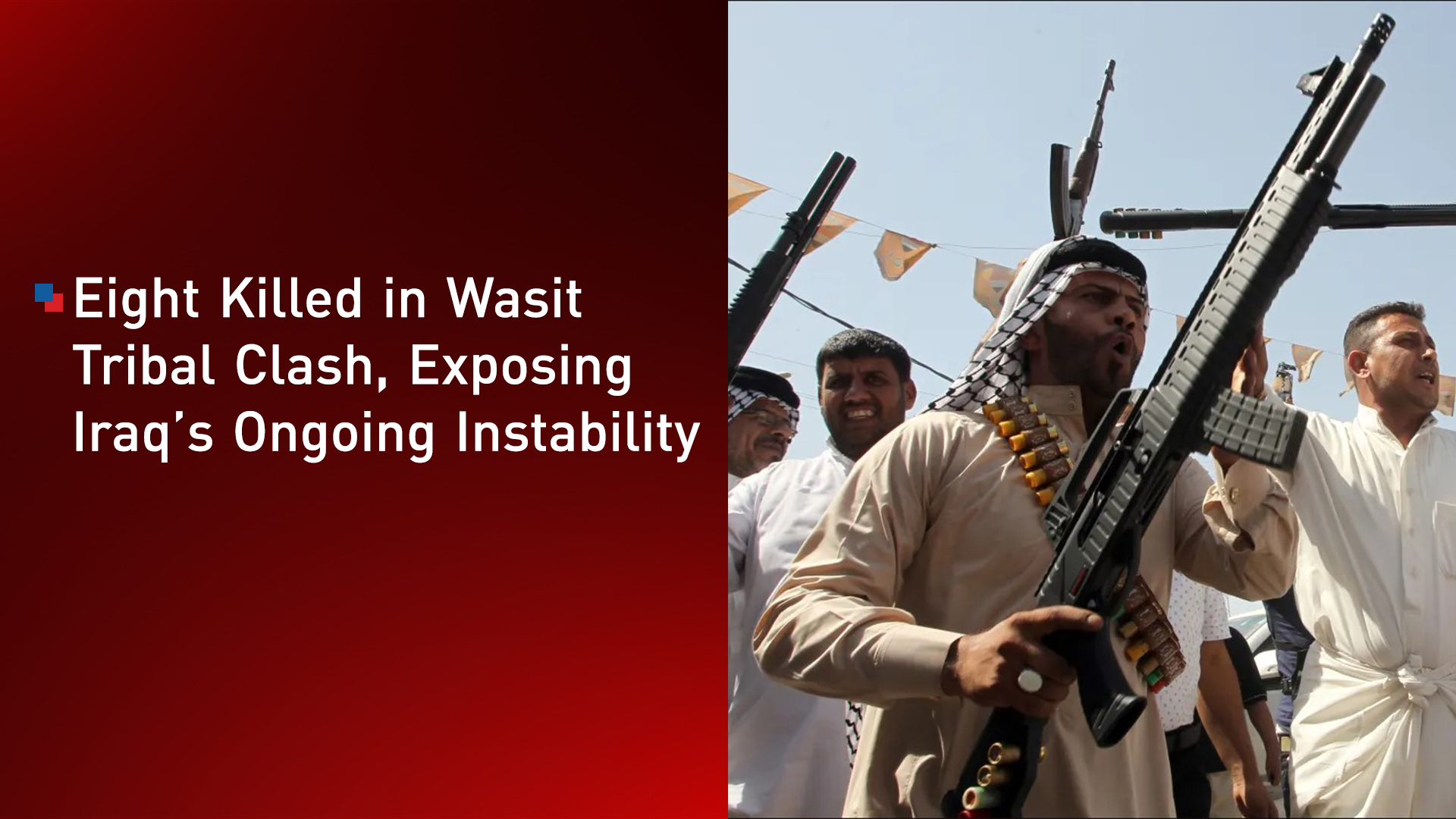Deadly Tribal Clash in Central Iraq Highlights Deep-Rooted Governance and Security Failures
Eight people were killed and nine others injured in Wasit Province amid yet another tribal conflict, underscoring Iraq’s persistent instability.

ERBIL (Kurdistan24) — Eight people were killed and nine others injured early Saturday during a tribal clash over agricultural land in central Iraq’s Wasit Province, a local security official told AFP, in the latest episode of violence rooted in long-standing tribal disputes that continue to destabilize parts of the country.
The fighting erupted in the village of Kheshan between members of a Bedouin tribe, according to the official, who requested anonymity as he was not authorized to speak to the media.
Security forces quickly surrounded the area, but intermittent skirmishes persisted for hours, underscoring the challenge authorities face in containing such conflicts.
Tribal feuds—often fueled by land disputes, honor conflicts, and unresolved grievances—remain a recurring feature in Iraq’s central and southern provinces.
These regions have, for years, struggled with fragile governance, widespread corruption, and limited state authority, leaving power vacuums that tribal groups frequently fill with their own systems of justice and armed enforcement.
Iraq’s modern history is marked by recurring tribal conflicts that tend to escalate with alarming speed. Decades of war, the proliferation of weapons, and the weakening of state institutions—particularly after the 2003 US-led Operation Iraqi Freedom — have contributed to a security landscape in which armed tribes wield enormous influence.
Across many Arab-majority provinces in central and southern Iraq, both Sunni and Shiite tribes maintain vast weapons stockpiles, at times rivaling the firepower of state forces.
Petty disagreements can quickly spiral into armed confrontations, often leaving civilian casualties and placing additional strain on under-resourced local authorities.
These clashes add another layer to Iraq’s entrenched governance problems: rampant corruption, mismanagement of public funds, and the extensive power of militias over the political system and segments of the economy. In such an environment, the state’s ability to mediate disputes or enforce the rule of law remains severely limited.
Such violent tribal confrontations are rare in the Kurdistan Region, where stronger governance structures, more dominant rule of law, and higher levels of public trust in security institutions have helped prevent similar cycles of communal fighting.
Kurdish society—shaped by broader access to education, a more urbanized population, and modern administrative systems—has largely moved away from tribal-based conflict resolution.
Residents in the Kurdistan Region typically rely on formal legal institutions rather than armed self-defense, reflecting deeper confidence in courts, police, and other state authorities.
Moreover, the Kurdistan Regional Government (KRG) has, for years, invested in economic development and careful management of resources. These efforts have helped expand the private sector, create employment opportunities, and foster an environment supportive of entrepreneurship and technological innovation.
Such socio-economic stability has kept communities more engaged in professional and educational activities, reducing the likelihood of violent communal disputes.
The deadly clash in Kheshan is the latest reminder that, despite recent years of relative calm, Iraq continues to grapple with systemic challenges that perpetuate instability.
With tribal groups still operating parallel justice systems and armed militias exerting influence over political decisions, many parts of the country remain caught between weak state structures and powerful non-state actors.
As authorities in Wasit work to de-escalate tensions, the incident underscores Iraq’s broader struggle: building a cohesive state capable of governing all its regions effectively, and preventing the past from continuously dictating its present.